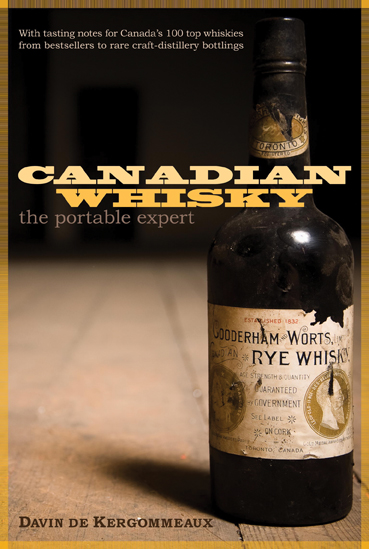Once upon a time,Canadian whisky was the spirit of choice in North America. It financed Confederation, helped build massive, still-standing commercial empires during the Depression and adorned the liquor cabinet of every swinging executive in the ’50s and ’60s (when drinking in the office was still a permissible indulgence).
But it’s fallen into disrepute in recent years. Davin de Kergommeaux, the Ottawa-based proprietor of Canadianwhisky.org and certified “Malt Maniac,”wants to change that.
In Canadian Whisky: The Portable Expert, de Kergommeaux, who will be appearing at nonfiction festival LitFest on Oct. 17, blends cultural analysis, historical study and epicurean insight to show and tell (there will be a tasting as part of the event) the sometimes misunderstood tale of Canada’s whisky industry. Case in point: In a world with 500 books a year published on the mating habits of sea turtles, his is the first on the subject of Canadian whisky in almost two decades.
“Nobody thought that it was interesting enough to write a book about,” de Kergommeaux says.
He begs to differ, though, and it’s hard not to agree with him. The book is filled with unexpected discoveries, such as the fact that the process of aging whisky actually began in North America as a Canadian tax-incentive program; or that J.P Wiser, Joseph Seagram and Henry Corby, three of Canada’s most famous whisky magnates, all ran for federal office.
And then, of course, there are the fortunes that were made – and lost – during prohibition.
But perhaps the biggest discovery of all is that Canadian whisky can hold its own alongside the best Scotch in the world. “It’s such a cliche,” de Kergommeaux says, “but Canadians really do have an inferiority complex. They don’t brag about their whisky. They should.” (McClelland and Stewart, 336 p., $24.99)
Like this content? Get more delivered right to your inbox with Ed. Eats
A list of what’s delicious, delectable and delightful.
